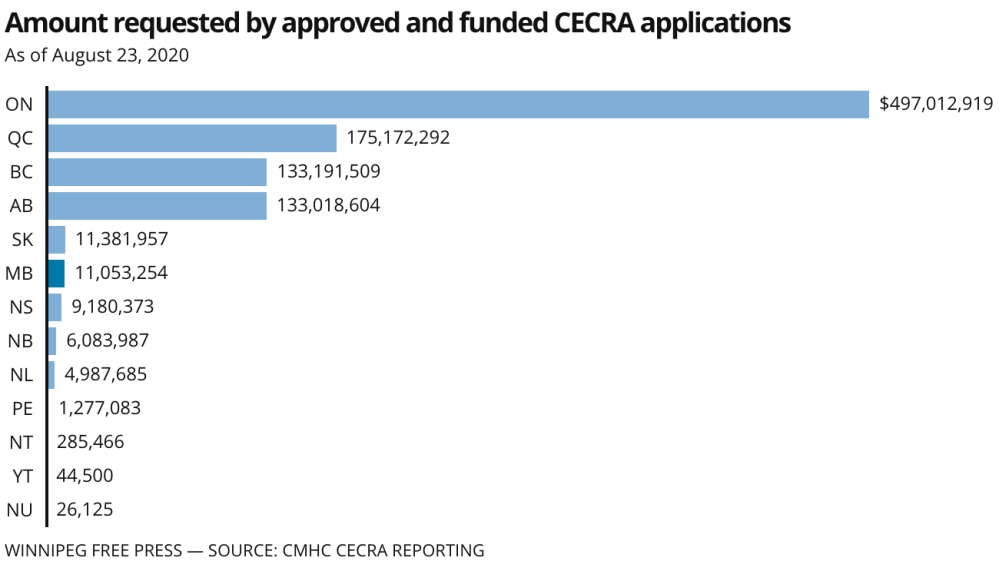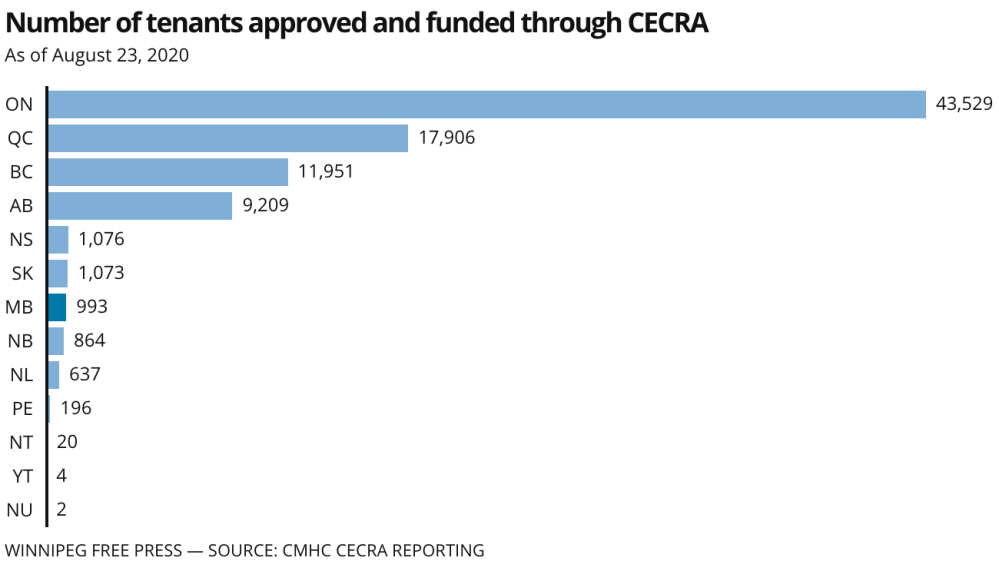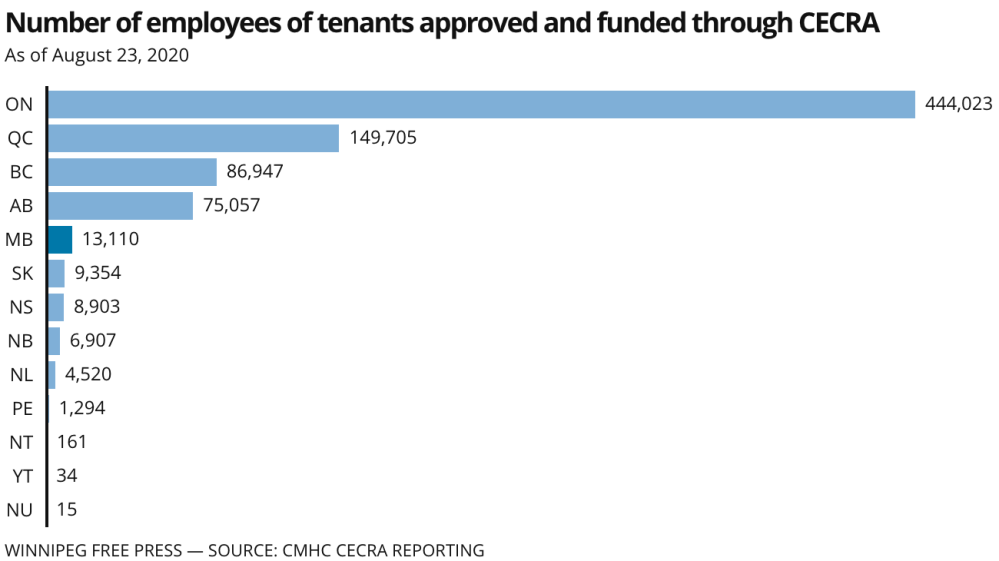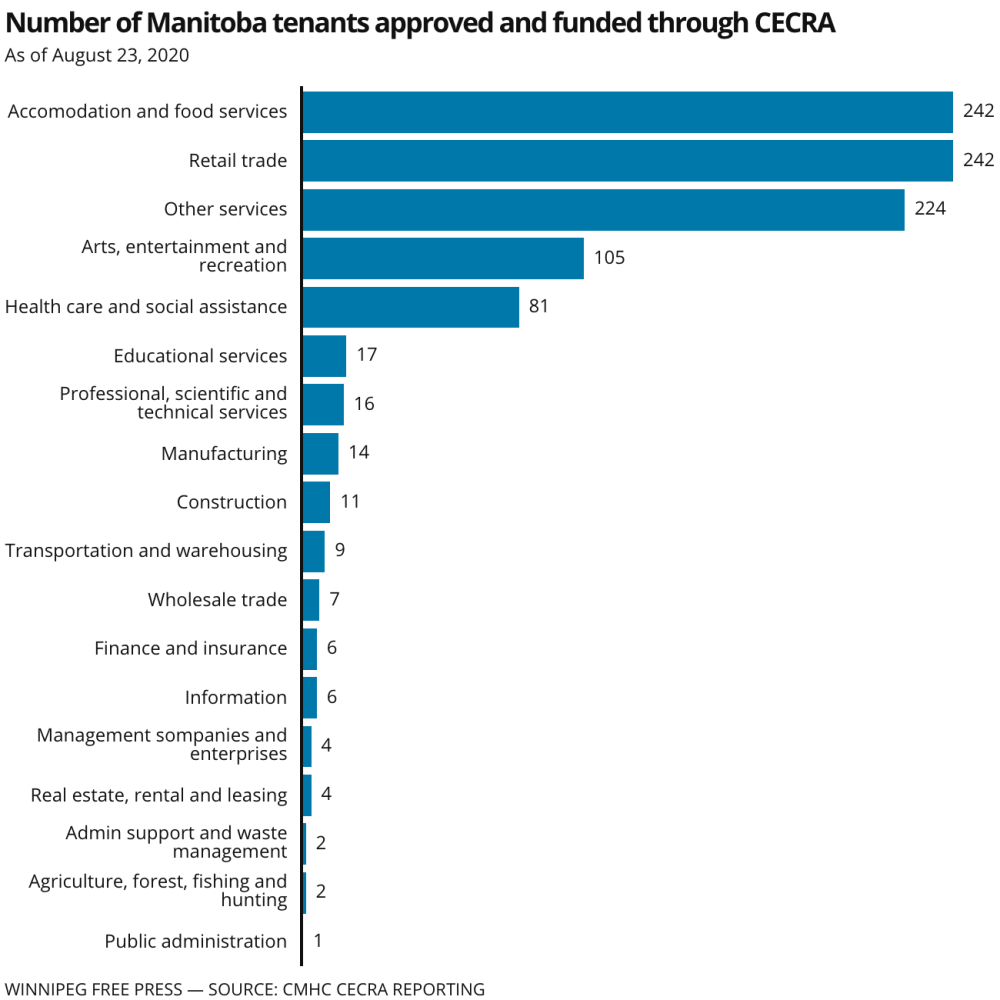Help for businesses out of reach Two-thirds of $3-B emergency commercial rent-assistance program funds untouched
Read this article for free:
or
Already have an account? Log in here »
To continue reading, please subscribe:
Monthly Digital Subscription
$0 for the first 4 weeks*
- Enjoy unlimited reading on winnipegfreepress.com
- Read the E-Edition, our digital replica newspaper
- Access News Break, our award-winning app
- Play interactive puzzles
*No charge for 4 weeks then price increases to the regular rate of $19.00 plus GST every four weeks. Offer available to new and qualified returning subscribers only. Cancel any time.
Monthly Digital Subscription
$4.75/week*
- Enjoy unlimited reading on winnipegfreepress.com
- Read the E-Edition, our digital replica newspaper
- Access News Break, our award-winning app
- Play interactive puzzles
*Billed as $19 plus GST every four weeks. Cancel any time.
To continue reading, please subscribe:
Add Free Press access to your Brandon Sun subscription for only an additional
$1 for the first 4 weeks*
*Your next subscription payment will increase by $1.00 and you will be charged $16.99 plus GST for four weeks. After four weeks, your payment will increase to $23.99 plus GST every four weeks.
Read unlimited articles for free today:
or
Already have an account? Log in here »
Hey there, time traveller!
This article was published 25/08/2020 (1935 days ago), so information in it may no longer be current.
OTTAWA — Manitoba is joining calls to reboot Ottawa’s troubled commercial rent-assistance program, as documents reveal that struggling Canadian businesses have tapped into less than a third of the available funds.
Internal records obtained by the Free Press show $983 million had flowed out of the $3-billion Canada Emergency Commercial Rent Assistance program as of Sunday.
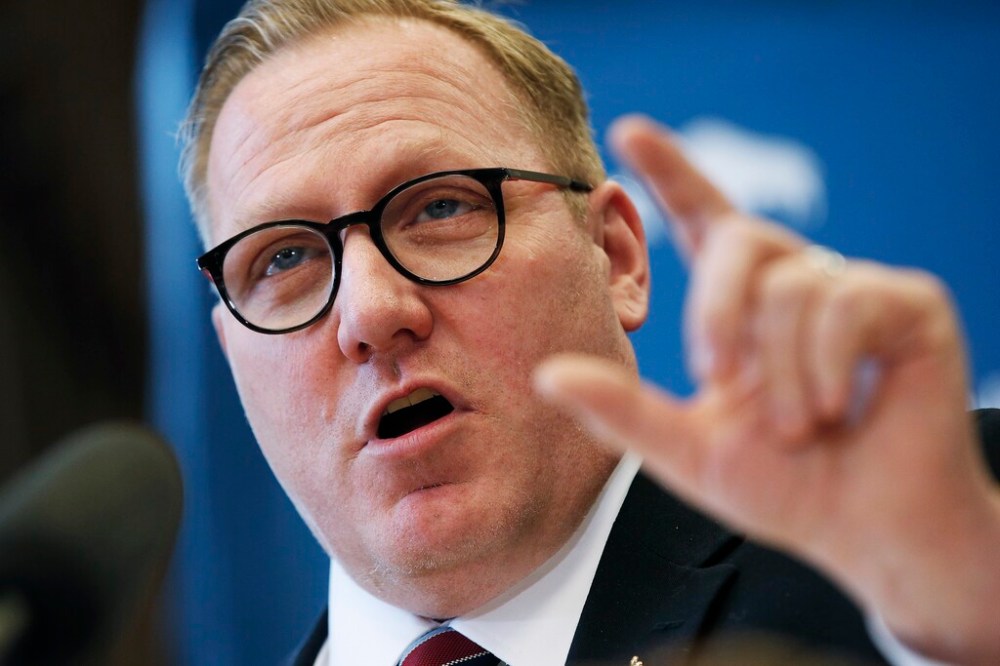
“This is something we think we can work on with the federal government, to make some changes and give some breathing room to businesses during COVID,” said Manitoba Finance Minister Scott Fielding, who provided the data.
Under the program’s terms, Ottawa and the province split half of a business’s monthly rent if the tenant agrees to pay a quarter and the landlord forgives the rest.
But since CECRA was launched in May, businesses have said the criteria are too strict, especially because only businesses that lost 70 per cent of their revenue qualify.
“This is something we think we can work on with the federal government, to make some changes and give some breathing room to businesses during COVID.”
– Manitoba Finance Minister Scott Fielding
Landlords have complained CECRA’s terms and time frame are unclear, and that they face a complicated application process when they do sign up.
But many business owners need help. In June, the Winnipeg Chamber of Commerce said the program “will be the determinant as to whether (local businesses) will be viable post-COVID.”
The data shows less than one-third of the available program funds have been allocated, despite some application adjustments and Ottawa’s decision to extend it from three months to five.
That aligns with what small-business owners report in surveys conducted by the Canadian Federation of Independent Business.
“It’s validated our suspicion that the program is grossly under-utilized, relative to the number of people who need it,” said CFIB executive vice-president Laura Jones.
The $3 billion is for the entire fiscal year, but Jones said the bulk of it was clearly meant to have been accessed by now to temporarily help businesses regain their footing, not to serve as a year-long subsidy.
“I’m very much hoping we’re going to see some common sense applied to this program,” she said.
Jones said about 15 per cent of CFIB members are at risk of collapsing due to rent costs, and that the top issue expressed in surveys is landlords reluctant to cut deals for businesses that would otherwise qualify for CECRA.
“The fundamental unfairness in that is crazy,” she said.
A month ago, the Saskatchewan government wrote to Ottawa, saying the “fundamentally flawed” program might better work if reluctant landlords were taken out of the equation. Saskatchewan proposed governments instead pay half the cost of rent, and have business owners pay landlords the remaining 50 per cent.
Fielding said he added his support to that proposal Monday in “a really good phone call” with Deputy Prime Minister Chrystia Freeland, who was named finance minister a week ago.
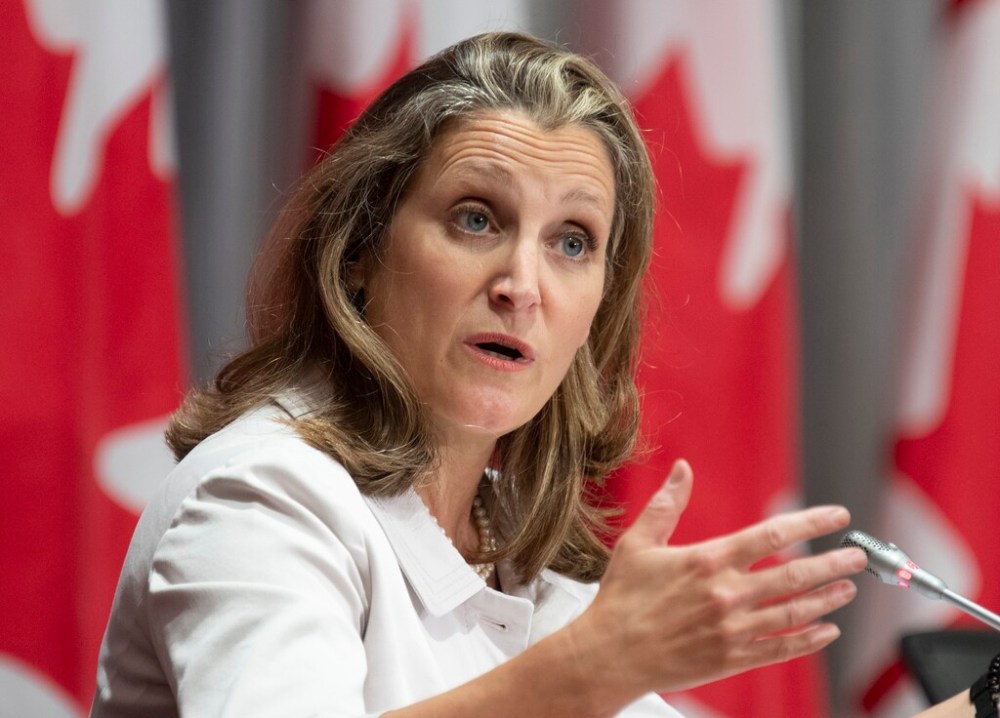
“The new minister was very open to listening,” he said. “Thats a very good sign. We want to make sure the money is being utilized for these businesses.”
Manitoba expected the program to dole out a combined $64 million in the province; just $11 million had flowed as of Sunday.
In late June, Manitoba joined other jurisdictions in issuing an eviction ban on tenants who qualify for CECRA. The province doesn’t believe that move has helped drum up landlord interest.
Instead, the Manitoba Gap Protection Program has offered forgivable loans to businesses and landlords who couldn’t tap CECRA.
The Trudeau government has acknowledged issues with CECRA, but has never said whether it would remove landlords from the formula.
Across Canada, CECRA had paid out $613 million as of July 30, the last publicly available number.
The internal data Fielding shared shows the provincial and industry breakdown. It shows $784 million was paid out by Aug. 16, and $982.7 million as of Aug. 23.
The recipients are overwhelmingly businesses with fewer than 100 employees, and one-fifth are either accommodations or food-service companies.
Ottawa has shared those figures for weeks with provincial governments, but has refused multiple media requests for the same information. Northern Affairs Minister Dan Vandal pledged in June to share CECRA data for Manitoba with the Winnipeg Chamber of Commerce, but his office said a month later that it didn’t have access to it.
Asked why Ottawa has kept the figures under wraps, neither Finance Canada nor the Canada Mortgage and Housing Corp. responded by deadline.
Jones said that suggests a federal government trying to steer attention away from a troubled program.
“It’s ridiculous that we haven’t had more transparency, so kudos to the Manitoba government for sharing this.”
dylan.robertson@freepress.mb.ca
Commercial rent-assistance data by province and industry

